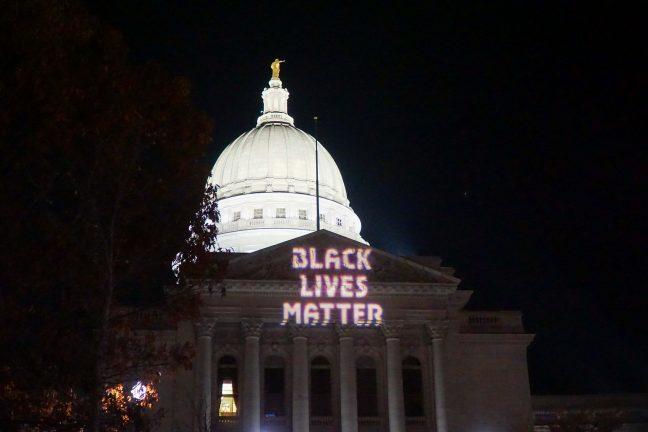Wisconsin lawmakers are moving forward on a resolution to recognize February as Black History Month and honor several Black Wisconsinites “for their contributions to the state of Wisconsin, the country, and their fellow citizens.” This resolution has been highly contested for several years but has gained bipartisan support this session.
Usually, resolutions pass through the Wisconsin Legislature without issue. But the Black History Month resolution has faced pushback from Assembly Republicans in the past. Republicans refused to pass the resolution in 2019 when it sought to honor Colin Kaepernick, a former NFL quarterback known for his public protest against police brutality.
In 2020, Republican Rep. Scott Allen, who is white, proposed a resolution that would have honored several white people in addition to the Black honorees selected by the Legislative Black Caucus. Luckily, Allen withdrew his proposed resolution after facing public condemnation.
Democrats’ new primary schedule better serves racially diverse electorate
This year’s resolution is cosponsored by Allen as well as by Republican Reps. Dave Murphy and Ron Tusler. According to Rep. Dora Drake, a Democrat and the chair of the Legislative Black Caucus, the current resolution has garnered support from all 35 Democrats in the Assembly and nine members of the state Senate.
Drake says no intentional effort was made to choose “uncontroversial” honorees for this year’s resolution. But notably, Kaepernick is not on the list — and not all Democrats are on board.
Sen. Lena Taylor, a Democrat and a member of the Legislative Black Caucus has not signed onto the newest resolution. According to WPR, Taylor says the controversy over the resolution takes attention away from the Legislative Black Caucus’ other plans for the rest of February.
In particular, Taylor criticized the way white lawmakers have taken part in “policing” the choices of honorees the Legislative Black Caucus has made. Regardless of whether this year’s honorees were selected to avoid controversy, there is a sense among some lawmakers that the resolution has been watered down to appeal to white Assembly members.
The policing of “acceptable” Black historical figures by white people isn’t new. Kaepernick’s story is an excellent example of this thinly-veiled racism. When he decided to start kneeling at football games during the national anthem in 2016, Kaepernick faced fierce opposition, according to the ACLU. Conservatives said he was bringing politics into sports — or worse, disrespecting the police and military.
UW’s Public History Project acknowledges past, lacks action for future
Kaepernick tried to argue that his choice was rooted in peaceful protest of racial inequality — not disrespect or disloyalty toward the United States. But, in 2018, the NFL banned kneeling during the national anthem, and according to the Seattle Times, he was effectively ousted from the league.
According to a study from Pew Research Center, Democrats are more likely than Republicans to think it’s acceptable for professional athletes to publicly address political issues. But there seems to be a discrepancy between these self-reported beliefs and the actual responses from the public.
Tim Tebow, who is a former NFL player and a white man, is no stranger to voicing his political beliefs. According to the New York Times, Tebow has a history of sharing his Christianity and conservative views on social issues. But, if anything, the public display of his political beliefs made him more popular among Republicans. He was even invited to speak at the Republican National Convention in 2016.
According to the Pew Research study, about 79% of Black Americans believe it’s acceptable for professional athletes to speak publicly about political issues. Members of the Legislative Black Caucus believed Kaepernick’s political speech was significant enough to honor him in the 2019 Black History Month resolution.
So what gives white lawmakers the right to disagree? It is simply not the place of white people to dictate who qualifies for an honor during Black History Month. The policing of resolution honorees reveals a sinister reality of racial marginalization.
Automatic voter registration represents step forward for Wisconsin voters
As we have seen over the course of American history, progress toward racial equality has almost never been achieved through the consent of the white majority. It was not white Americans granting equal rights, but Black Americans breaking racist laws that led to the passage of the Civil Rights Act of 1965. The leadership and persistence of Black people in their own activist efforts — not the control of white Americans — is what has driven the success of racial equality in the United States.
The tendency of white Americans to insert themselves into discussions of racial activism for the purpose of controlling the narrative is indicative of deeply problematic attitudes toward the efforts of Black Americans to achieve equality.
For the purpose of the Black History Month resolution to be realized, non-Black legislators have to step aside. Instead of blocking a resolution that honors figures they find to be controversial, white lawmakers must uplift the voices of their Black colleagues who believe otherwise.
The Black History Month resolution is intended to honor Black people who have made notable contributions to society. But if white lawmakers have the power to decide who these honorees are, we risk marginalizing the very perspectives we should be aiming to amplify.
Celia Hiorns ([email protected]) is a sophomore studying journalism and political science.














